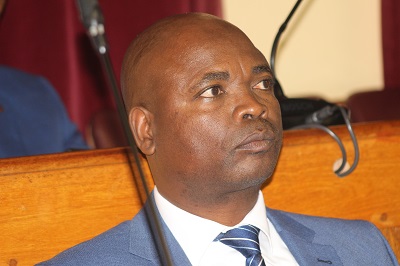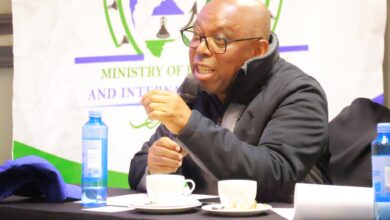Senate Chair of Chairs, Dr. Thabiso Lebese Calls for Urgent Education Reforms to Address Youth Unemployment in Lesotho

Senate Chair of Chairs, Dr. Thabiso Lebese, has called for immediate policy reforms in the education sector to address the growing unemployment rate among youth in Lesotho. Dr. Lebese made these remarks in response to Motion 40, introduced by Senator Leboea Khoale, which highlighted the serious plight of the youth in Lesotho, particularly the high levels of unemployment.
Dr. Lebese emphasized that finding lasting solutions to youth unemployment hinges on comprehensive reforms within the education system. He believes that to effectively combat this issue, the country must delve into the underlying factors contributing to the unemployment crisis, with a particular focus on how students are prepared at various levels of education, from primary to tertiary institutions.
One of the key points Dr. Lebese raised was the need for an educational shift in focus. He stressed that the current education system in Lesotho does not adequately equip students with entrepreneurial mindsets, nor does it foster the skills necessary for job creation. Instead, it primarily shapes students to become job-seekers rather than job-creators, which he argued is a fundamental flaw in preparing young people for the modern economy.
“Our education system does not shape students to have an entrepreneurial mindset, the ability to create jobs for themselves. Instead, it shapes them to become employable,” Dr. Lebese noted. This lack of emphasis on entrepreneurship and self-sufficiency, he continued, leaves many young Basotho unprepared for the challenges of a competitive job market.
Dr. Lebese’s comments highlight a growing concern among policymakers that the education system must be restructured to better align with the needs of the modern workforce. If the country is to reduce youth unemployment effectively, reforms must focus on instilling critical thinking, problem-solving, and entrepreneurial skills in students, preparing them not just for jobs, but for the challenges of creating their own employment opportunities.
In conclusion, Dr. Lebese’s call for urgent education reforms echoes a widespread sentiment that youth unemployment in Lesotho is not just a matter of economic policy, but also a deeply rooted issue in the educational approach. By reforming the education system to foster innovation and entrepreneurship, Lesotho could empower its youth to become key drivers of the nation’s economic growth.
Join 'Lesotho News' WhatsApp Channel
Get breaking Lesotho news — delivered directly to your WhatsApp.
CLICK HERE TO JOIN



